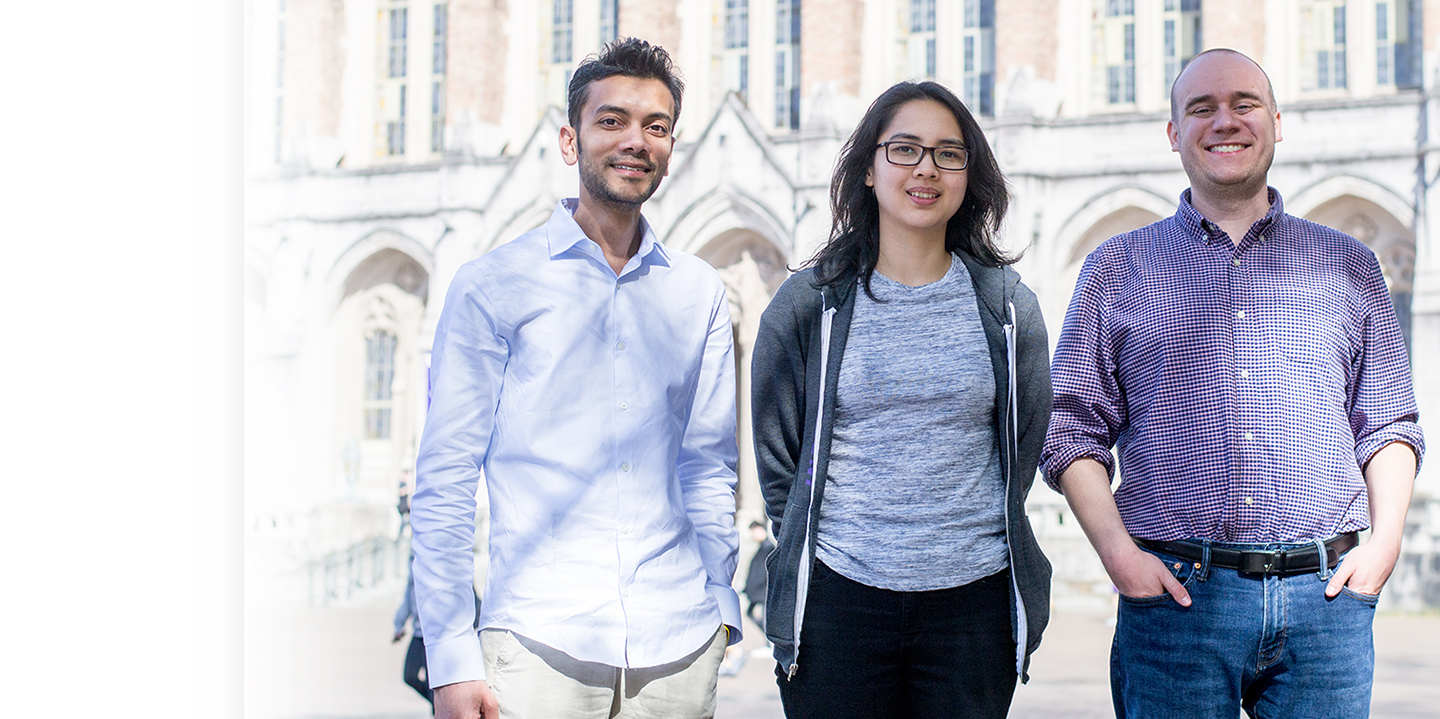Timothy Pace likes to sink his teeth into big data. Dania Tanzil gravitates toward cybersecurity. Manas Thakre has a knack for business analytics and project management.
For their Capstone project, the trio of Information School Master of Science in Information Management (MSIM) students joined forces to help T-Mobile tackle a rising problem: malicious data that clogs mobile networks and poses a security risk to smartphone users.
With people increasingly glued to their smartphones for both communication and entertainment, more and more unauthorized advertisers and bad actors are targeting the devices, spreading malware and annoying users. T-Mobile sought an Information School team that could figure out how to spot advertising and “malvertising” – malware disguised as legitimate ads – using a test dataset created on the company’s mobile network.
“When you break down the process of identifying and mitigating adware and spam, the first step is to identify ads,” Pace said. “The pitch was to identify advertising traffic, paving the way in the future to identifying the more malicious kinds of ads.”
Pace (pictured at right above), Tanzil (center) and Thakre collected approximately 4 million rows of network traffic, a tiny fraction of the amount of data that passes through the network each minute. They filtered that down to unencrypted web browsing, which accounted for a little over 1 percent of the dataset – a more manageable 43,000 rows. Using unencrypted traffic, the team could see domain names, so they were able to use ad-blocking software to identify known sources of advertising. They then used machine learning to see what factors predict what is or isn’t an ad.
The algorithms they produced were able to identify ads with greater than 90 percent accuracy — a very promising sign for T-Mobile that it will be able to use such techniques to find out whether advertisements are legitimate. While they used unencrypted traffic for their project, the team members’ methods of classifying data can be applied broadly to T-Mobile’s encrypted data as well.
“The big data model building provided T-Mobile with a good start on building out this technology for potential enterprise-level deployment,” said Aaron Drake, who advised the team on behalf of T-Mobile, where he is senior manager of product technologies and platforms. “Their creative approach to the problem helped our team understand new and interesting ways to use existing technologies such as ad blocking.”
The project is one of more than 150 being developed for Capstone, the annual showcase of skills students build at the iSchool. Often working in teams, students apply what they’ve learned to a real-world problem, frequently with a corporate or community partner.
The team approach served this project perfectly, with all three students bringing different strengths, different perspectives and even different nationalities to the project. The result was what Thakre called a “mini-corporate experience,” with diverse skills and points of view helping to solve problems.
“That’s one thing about the iSchool. We three are from completely different backgrounds and we’re doing a project,” said Thakre, who is from India. “That’s an enriching factor.”
Tanzil, who is from Indonesia, said the iSchool’s diversity and team approach were what attracted her to the MSIM program. She knew it from experience, having earned her bachelor’s degree in Informatics at the iSchool.
“What brought me to the iSchool is definitely the people and the strength of the cohort,” she said. “You can totally learn from each other and also from working in such a diverse team. I learned a lot about how to handle communication and how to understand data science.”
Tanzil worked as a web application developer after earning her undergraduate degree, but discovered a passion for cybersecurity while in the MSIM program and made that her specialization. Meanwhile, Thakre has customized his degree with parts of three specializations – data science, business intelligence and user experience. Pace, who has worked as a researcher at UW Medicine and Microsoft Global Security, is specializing in data science.
“Everybody contributed equally,” said Pace, a U.S. domestic student. “We’ve never worked together on previous projects, but I think the team dynamic we have and our various backgrounds came together well.”
Along with their own hard work, the team credits iSchool lecturer Phil Fawcett and Capstone instructor Sean McGann for their guidance. Their project could be a steppingstone to a smoother experience for millions of mobile customers.
“You can tell from their enthusiasm that T-Mobile is looking forward to this,” Pace said.
